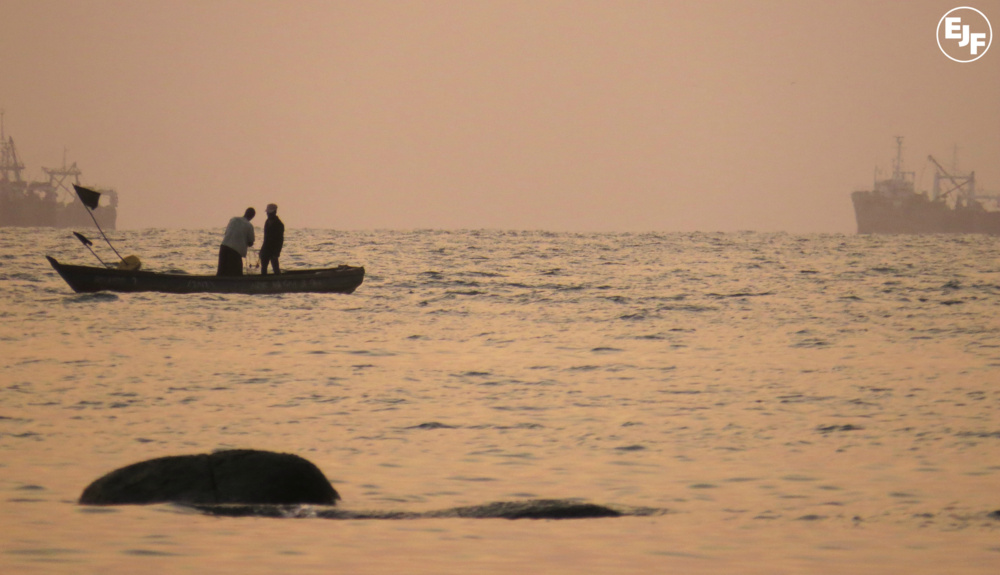
Teach a man (not) to fish: EJF's work with coastal communities in West Africa
The landing site of Elmina is the busiest place of this coastal town located just four hours drive west from the capital city Accra, in Ghana. The small port is where the 6,000 local fishermen and their 400 canoes bring back the daily catch, later sold fresh on the market or smoked by fishmongers. Observed from the white walls of St. George of the Mine Castle, built by the Portuguese in the 15th century, the scene is idyllic, a beautiful picture. It is only when walking down and talking to fishermen that you notice the cracks in the paint.
“They are catching the fish, which artisanal fishermen depend upon. This has been our livelihood since we were born and we have nowhere else to go. We need help!” Joseph Prah, Chairman of the local boat owner association
“They” are large fleets of industrial trawlers coming from abroad and fishing in the areas earmarked for traditional fishermen. You might think that since oceans cover about 70% of the Earth’s surface, there is space for everyone and that large industrial vessels don’t compete with local fishermen - but they do. Most fishing worldwide actually happens near coastlines and this is how foreign industrial vessels, driven out of their own waters by overfishing, come to the coast of West Africa and literally steal the fish from local fishing communities.
How can this be happening in 2014? Driven by the lure of easy profit and taking advantage of some West African countries’ lack of capacity to enforce their own laws and monitor their coastline, industrial trawlers often pull their nets illegally, too close to the coast, in areas reserved for traditional fishermen. This has devastating effects on marine biodiversity and often damages the local fishermens’ expensive equipment. Ironically, faced with reduced catch and income, traditional fishermen may themselves revert to illegal fishing practice, thus making the problem even worse.
Since 2009, EJF has been working on this issue, at the crossroads between environmental conservation and human rights protection. Our threefold approach is simple.
Firstly, we set up community surveillance programmes to re-empower local fishermen, putting them at the forefront of law enforcement. Equipped with GPS-enabled cameras, they gather evidence of illegal fishing at sea. This information is then sent to the relevant authorities that can sanction vessels operating illegally.
Secondly, EJF encourages fishermen communities to take an active role in the management of the fish stocks they depend upon. This is done through the creation of Co-Management Associations (CMAs), which gather scientific data on fish stocks and breeding grounds, allowing for localised conservation measures, which lead to more sustainable use of the natural resources.
“EJF has done a lot of sensitisation on the importance of CMAs. It helps us to strengthen unity amongst communities and to coordinate the channelling of reports to the appropriate authorities.” Michael Tucker, Secretary of the Bonthe North CMA, Sierra Leone
Finally, to further reduce the pressure on fish stocks and to diversify the economy in local coastal communities, EJF promotes alternative livelihoods through the establishment of small-scale solar power or aquaculture businesses. This is particularly important as in some areas, only reduced fishing by both traditional and industrial fishers will allow for the necessary regeneration of fish stocks.
In addition to the obvious environmental and economic consequences, industrial illegal fishing disempowers local fishermen. Through its work with coastal communities in West Africa, EJF aims to rebuild the confidence of local fisherman and to make them key actors in the management of fisheries in the region.
SIGN UP FOR OUR EMAILS AND STAY UP TO DATE WITH EJF